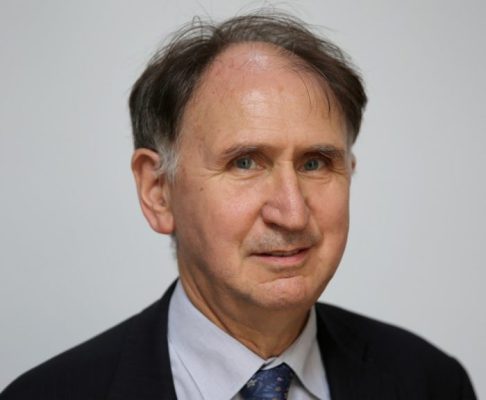Stephen Duffy is a statistician by training, educated at the University of Edinburgh and Imperial College, London. He has worked in the UK, Singapore, France, Sweden and Russia.
In the past, much of his work was on randomised trials of cancer screening. These included the Swedish Two-County Trial of breast cancer screening, on which the UK’s national breast screening programme was based, the UK Trial of Flexible Sigmoidoscopy, and the UK Lung Screening Trial. As a result of the breast screening work, he has twice been awarded the Alexander Margulis Prize for Scientific Excellence by the Radiological Society of North America.
Since 2010, Duffy has been director of the Policy Research Unit in Cancer Awareness, Screening and Early Diagnosis, which is a collaboration of primary care physicians, behavioural scientists, epidemiologists and statisticians in seven institutions. It researches interventions to promote diagnosis of cancer at an earlier stage by both screening and symptomatic routes.
Where do you get your best research ideas?
Usually in conversation with colleagues, particularly Peter Sasieni, one of the smartest people I know. I am not sure whether that means I pinch their ideas, or just that the exchange stimulates the ideas. Let’s assume the latter for purposes of argument.
Which failure(s) changed you the most?
I guess having my CR-UK programme grant discontinued in 2008. It forced me to look in different directions and find a funder who was interested in breadth rather than depth, since I’m a bit of a jack of all trades, master of none.
Speaking of failure, I remember emerging shell-shocked from a particularly tough numerical analysis exam, and one of my fellow students remarked, ‘You know the phrase, an insult to your intelligence? Well, that exam was the finest compliment anyone has ever paid to my intelligence.’ The first thing that university taught me was that I wasn’t as smart as I thought.
What is the best piece of advice (work or life) you’ve been given?
In terms of work, it came from my boss, Charles Rossiter, when I worked at Northwick Park in the 1980’s. It was very specific to me, so is not much use to anyone else. When I told him that I would like to work overseas, Charles said, ‘Why don’t you write to Nick Day?’ Nick was the head of Biostatistics and Field Studies at the International Agency for Research on Cancer in Lyon. I took the advice and wrote to him. Nick sent me to Singapore the following year. Nick is a lovely man, and was a great boss. I ended up working with him for the next fifteen years, in a job that took me all over the world, and gave me a career in cancer screening.
For advice which might be of use to others, the late Jane Wardle, a brilliant health behaviour psychologist, once said that people respond more to positive messages than to hand-wringing. I think that is a valuable principle to follow.
I’m inspired most by…
My family. When I was young my inspirations were my older brothers Tony (Tbone, the musical one) and John (the academic known to the rest of the family as Father Jack, for reasons you would understand if you met him). Nowadays, I am inspired by the brilliance and work ethic of my wife Linda, and the way our sons Bill and Tom persevere despite adversity of various kinds.
What’s an event that changed your life?
Meeting my wife Linda at a Royal Statistical Society conference in Cambridge in 1987.
What’s the next big thing in cancer? What will be the game changers?
As regards predictions, I have a 100% record. I am always wrong. However, I will tell you what I hope for. When the USA’s National Lung Screening Trial published its dramatic result, a 20% reduction in lung cancer mortality with low dose CT screening, I was so excited. I thought, at last- something that works for lung cancer. I am hoping that sometime in the near future we will find something (prevention, early detection or treatment) that works for pancreatic cancer. Also, things are moving fast in terms of oesophageal cancer prevention, early detection and control. I hope for a breakthrough there.
What is your favourite paper that you’ve published in the last 5 years (the one you’re most proud of)?
Sir Richard Doll once said that your most interesting work is not published in The Lancet or the New England Journal of Medicine, it is published in less high impact journals that are prepared to take a chance on new ideas. I suspect my most important papers of the last five years were the final follow-up of the UK Breast Screening Age Trial and the first mortality results of the UK Lung Screening Trial, but the one I like best and had most fun writing is a sort of educational paper on methods of evaluation of cancer screening, and was published in a low impact journal.
The views expressed are those of the author. Posting of the blog does not signify that the Cancer Prevention Group endorse those views or opinions.

